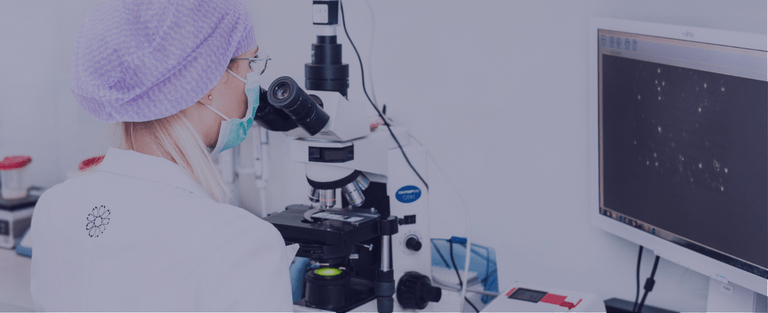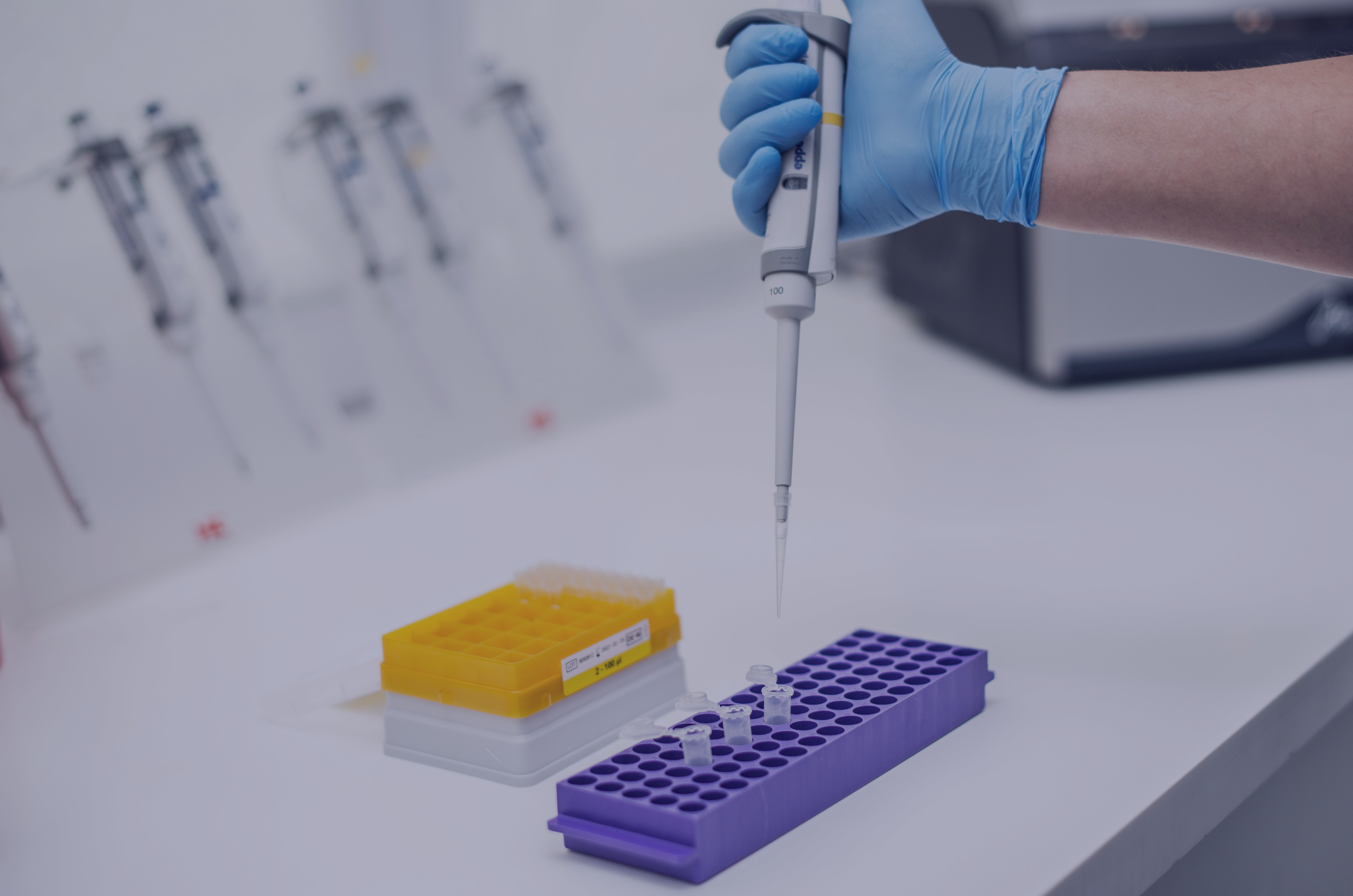Preimplantation diagnosis helps to select the embryo with the best chance of proper implantation and normal prenatal development.
Increase the chance of a successful IVF procedure and the birth of a healthy baby !


Preimplantation diagnosis helps to select the embryo with the best chance of proper implantation and normal prenatal development.
Increase the chance of a successful IVF procedure and the birth of a healthy baby !
Detection of genetic abnormalities at a very early stage of embryo development before transfer to the uterus.
Preimplantation diagnosis (PGD/PGS-NGS) is used to detect genetic defects in embryos before they are transferred to the uterus. With their help, we are able to select embryos with the greatest potential for implantation and chances of normal development. There are several types of preimplantation genetic tests. These are PGT-A, niPGT-A, PGT-M, PGT-SR and Karyomapping. Each of them detects a different type of genetic disorder.
The Gyncentrum Genetic Laboratory has state-of-the-art human genome sequencing technology (Illumina NGS System). It makes it possible to detect, at a very early stage of embryonic development, genetic abnormalities with unprecedented accuracy.

Karyomapping, or so-called karyomapping, is a new technique for genetic diagnosis of embryos prior to their transfer into the uterus. It helps reduce the risk of transmitting a monogenic disease to the embryo.
PGT-M is a genetic test for disorders in single genes (monogenic diseases). It involves evaluating the genetic material of embryos created during the in vitro procedure.
PGT-SR is a genetic test for structural chromosome rearrangements. PGT-SR identifies embryos that have a normal amount of genetic material and those in which the amount is abnormal.
niPGT-A is a non-invasive genetic screening test that evaluates the number of all chromosomes present in material taken from the culture medium of an embryo at an early stage of its development.
PGT-A is a genetic screening test that assesses the number of all chromosomes present in a cell taken from an embryo at an early stage of its development.
What are preimplantation genetic tests?
Preimplantation genetic testing involves evaluating an embryo for genetic disorders. They are carried out on cells taken from embryos created during the in vitro fertilization procedure, before the woman becomes pregnant.
Thanks to preimplantation genetic testing, it is possible to diagnose, among others. Turner syndrome, Down syndrome, Edwards syndrome, Patau syndrome, Klinefelter syndrome, hemophilia, tuberous sclerosis, Huntington’s disease, cystic fibrosis, spinal muscular atrophy (SMA), Duchenne and Becker muscular dystrophies, among others.
Earlydetection of genetic disorders and transfer of healthy embryos reduces the risk of reproductive failure and birth of a child with a genetic defect.

Are you interested in preimplantation genetic testing?
Contact us for details!
When is it a good idea to perform preimplantation genetic testing?
Preimplantation genetic testing is designed for couples undergoing the in vitro fertilization procedure. Before the partners finally decide to perform genetic diagnosis before IVF, the specialist will conduct a detailed medical interview with them, explain what the whole procedure is about and present the most important indications for preimplantation diagnosis.
Inwhat cases is it worth performing preimplantation diagnosis?

Why perform preimplantation genetic testing?
Defects in an embryo’s genetic material can either contribute to miscarriages or make it difficult for the embryo to implant in the uterus. Preimplantation tests track these defects, so partners gain:
The test is carried out on cells taken from an embryo at the blastocyst stage, that is, on the fifth or sixth day after the sperm and egg fuse. The transparent sheath of the embryo is incised and a few trophoblast cells are taken – at this point the embryo already consists of dozens of such cells.
The test is carried out using the Illumina NGS method. With its help, all embryos can be tested even before they are administered to the uterus in less than a dozen hours! In this short period of time, several thousand to even a million readings of DNA sequences derived from individual cells of the embryo are performed. Based on analysis of the results from NGS sequencing, each embryo can be screened for the presence of numerical aberrations and large, unbalanced structural aberrations of all 24 chromosomes.
Preimplantation genetic testing examines the embryo for diseases determined by mutations of a single gene, otherwise known as monogenic diseases. These include:
The embryo can also be tested for diseases caused by abnormalities in the structure or number of whole chromosomes (numerical and structural chromosomal aberrations). These include both translocations and deletions or duplications. A change in the number or structure of chromosomes is responsible for such diseases as:
A referral for PGT-A preimplantation testing of a couple can be issued by an infertility specialist, if he or she deems that such tests are needed. On the other hand, for testing for monogenic diseases, i.e. PGT-M or PGT-SR, the referral is already issued by a geneticist – based on the mutation that has been detected in the patient or his relatives.
Schedule a consultation with our specialist!
We will contact you shortly to schedule a convenient appointment.